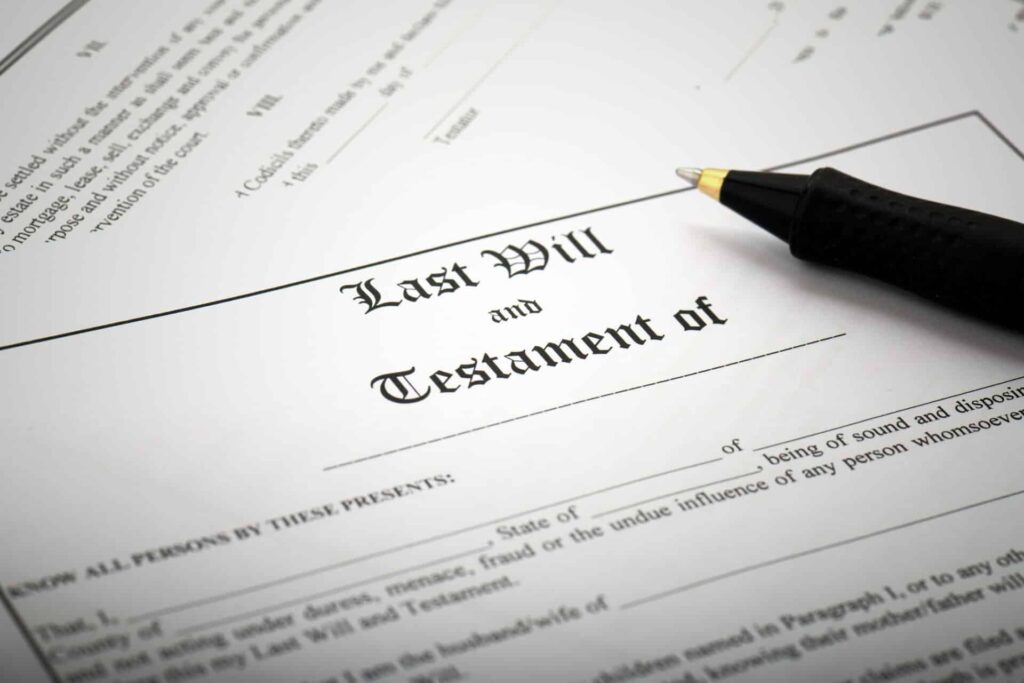There are taxes and there are taxes. As a divorce and estate planning attorney in Texas, I see many people attempt to avoid probate only to increase taxes either for themselves or the recipient that they are trying to protect. Upon divorce, there are some properties that are worth less than they appear if you take taxes into consideration. Your estate planning or divorce attorney has a general knowledge of the effects of certain transfers, but you should always check with a CPA or tax attorney for the most current rules on the laws of taxation. Here are some general principles to consider.
For the most part, the transfer of property in the process of divorce is a non-taxable event. In a community property state such as Texas, you already owned the community property whether or not your name was on the title or the account. When you spouse signs a deed to transfer the house title to you or divides a retirement fund with you at divorce, you are simply dividing up what is already yours. Since it is not a gift nor a sale, there is no tax triggered if it is done correctly. But there are still tax considerations because some assets come with tax liability attached. When stock is sold, there may be a capital gains tax in addition to income tax, so the net value of the asset is reduced if you liquidate it. If you need liquid cash for living expenses, a regular savings account may be a better choice in the division of property that a larger sum that is tied up in a retirement fund. Even though you can take an early withdrawal from the retirement fund, there are income taxes and penalties for the withdrawal if you take it out early. Houses other real estate have ad valorem taxes that must be paid annually such that even if the house has no mortgage attached, the taxes may be more than you can afford, and if you sell the house, then you may have to pay capital gains tax unless you use the proceeds to buy another homestead.
Gift Taxes. Whenever one makes a gift of any property that exceeds the annual gift tax exclusion amount, there may be gift taxes. People often think of that in terms of giving gifts of cash. But what about gifts of stock or real estate? Those gifts fall under the same rules. The person receiving the gift does not have a duty to report the value of the gift, but the person giving the gift does because the person giving the gift is responsible for any gift tax.
This may be fairly easy to avoid when giving gifts of cash or stocks, by simply checking the current IRS rules and ensuring that the value of the gift is below the annual exclusion amount. But what about real estate? If the annual exclusion amount is $17,000, which is exclusion amount for tax year 2023, it is probable that a gift of your homestead to your child is worth more than $17,000, and would thus be a taxable event.
What happens years later when your child sells the house? Then there is a capital gains tax to consider. “Capital gains tax” is generally the tax on the profit from the sale calculated by the property’s sales price minus the “cost basis” which is generally the original purchase price. So if your parents bought a house at $50,000, and decades later gift it to you during their lifetime, there is a gift tax to them based on the current market value of the house, and when you sell the house for $200,000 decades later, you pay a capital gains tax based on the $150,000 difference between what your parents paid for the house and your selling price. The same is true for gifts of stock. When you sell the stock that was gifted to you by your parents (or anyone), you pay the capital gains tax based, not on what the stock was worth when you received it as a gift, but instead based on what the stock was worth when your parents bought it, which over many years can be quite a substantial gap.
The good news is that there are a number of ways that capital gains tax can be virtually eliminated. One way is to “gift” the property through a Will or inheritance. When a person receives property as an inheritance or through a decedent’s estate, the cost basis is raised to the value of the property at the time of the decedent’s death instead of the value when the decedent purchased the property. This is called a “step up in cost basis.” If the value placed on the property in the decedent’s estate inventory at probate is as much or more than what the property later sells for, then there is no profit or “capital gain” to be taxed. The same is true if the property passes through a revocable living trust or a transfer on death deed. So the word of caution on real estate is, in your haste to avoid probate, do not just sign a regular Special Warranty Deed or Gift Deed to your child or you have probably created a taxable event that could have been easily avoided either by probate or by a different type of transfer.
A “transfer on death deed” is one where that certain real estate described in the deed will automatically change ownership upon the death of the donor. The real estate bypasses probate and does not belong to the decedent’s estate, but the ownership does not actually change hands until the date of death. Many years ago in Texas, the wife of former President Lyndon B. Johnson used such a deed and the deed became known by the nickname associated with her as a “Ladybird Deed.” Traditionally, this type of deed was a life estate retained by the donor and the remainder interest to the beneficiary, but the deed was not revocable once signed. More recently, by Texas statute, we now have a “Revocable Transfer on Death Deed.”
In addition to avoiding the cost of probate, the real estate property passes in a transfer on death deed with the same step-up in cost basis that would have occurred in probate and if the property is sold soon afterwards, then the capital gains tax may be avoided.
However, before you rush to sign a transfer on death deed, keep in mind that it may not totally eliminate the need for probate of your estate. The deed only covers that one piece of real estate, not everything else that you own. If you own other property in your name, such as stock or bank accounts, at the time of your death, a probate estate may be necessary to transfer that property to your beneficiaries. You can only truly avoid probate if no property is in your name at the time of your death. People often create revocable living trusts in order to avoid probate, not fully realizing that the trust document itself is not enough to accomplish that goal. All property must be transferred into the trust in order for the trust to control it. The lawyer who sets up the living trust may also prepare deeds for transfer of real estate into the trust, but usually it is up to you to take care of changing the owner’s name on your bank accounts and investment accounts. This is why a good attorney who creates a living trust for you, will at the same time, draft what is called a “pour over” will. The will states that if you own any property at your death, that property is now transferred into the trust by the probate of the will. In other words, your living trust did not result in your estate avoiding probate because you only truly avoid probate if you own nothing in your name at the time of your death.
Finally, grandparents may reason that their children have enough property of their own without an inheritance so they want to provide for their grandchildren instead. Additionally, grandparents may be concerned that the money they pass to their children will simply be taxed again when their children die. But if the grandparent has a large estate, beware the “generation-skipping tax.” In Texas, one only has to be concerned about estate tax and generation-skipping tax if the total estate is quite large. In some states, there is a state estate or death tax in addition to the federal estate tax. Those states that collect their own estate tax also generally have their own generation-skipping tax as well. In Texas, if our property is located in Texas, we only have to beware of the federal taxes.
The generation-skipping tax is triggered when someone gifts assets to a person two or more generations younger than the transferor, whether it is done during the donor’s lifetime or after their death. Generation-skipping tax also applies if the beneficiary is at least 37 ½ years younger than the donor. This federal tax is designed to prevent the donor from avoiding estate tax by skipping their children but it applies even to non-relatives. Generation-skipping is taxed even if the donor skips the generation in a normal trust. The generation-skipping tax is paid by the donor if the generation is skipped directly, and in indirect transfers through a trust, the tax is paid /.lkjuyhgggby the skipped beneficiary.
The generation-skipping tax is costly with the tax rate currently at 40%, but most people do not have to worry about it because of the high threshold on federal estate tax. For a person who dies in 2023, the exemption on federal gift/estate tax is $12.92 million for an individual and twice that amount for a married couple, although the exemption is expected to be drastically reduced in 2026. Again, the grandparents can give annual gifts of up to $17,000 in 2023 to as many of their grandchildren, or to anyone else they choose, without ever incurring a generation-skipping or estate tax. For those with large estates, the generation-skipping transfer tax can be minimized with a carefully drafted dynasty trust which makes specified distributions in each generation but avoids gift taxation on the corpus of the trust.
Thus, if a person has an estate that may be subject to the federal estate tax, or if he or she owns significant real estate in another state that has a state estate tax with a lower threshold, then merely avoiding probate with a typical revocable living trust is not sufficient to avoid the generation-skipping tax. Speaking of trusts, for persons who have modest estates and do not own property outside of Texas, a living trust may not be the best estate plan for them. It may surprise you to know that in Texas, contrary to what most people are told, the cost of a trust is often more than the cost of probate, and many people with living trusts find that a portion of their estate must go through probate anyway.
In conclusion, people often try to avoid one tax or the cost of probate only to find that they have incurred more expense than the one they were trying to avoid. It is important to consult with a CPA or tax attorney as well as your divorce attorney or estate planning attorney in any attempt to make major property divisions or transfers, whether through divorce or upon death, and to consider all the aspects of your particular estate, your season in life, and your goals, rather than simply to say “I want a revocable living trust,” or “I need a Will.” Some property has greater tax consequences than other property. Sometimes a simple Will or simple living trust will not protect your property as you had hoped. The things that you read may apply to some states but not other states, and the laws change over time. Tax laws especially change every year. There is no “one-size-fits-all” in divorce planning or estate planning.






